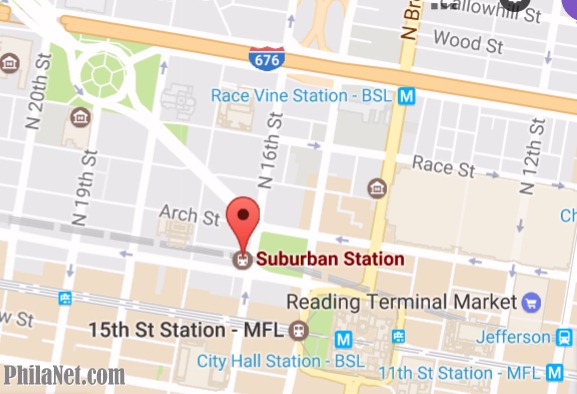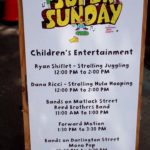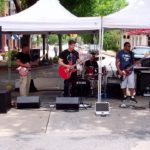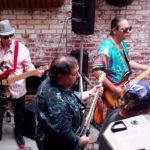West Chester, Pennsylvania holds an annual event on the first Sunday of June called “Super Sunday”. The streets are closed for crafts, vendors, children’s activities and live music.
Category: Communities
bookmark_borderMarch for Science in Philadelphia
Saturday, April 22 at 10 AM – 2 PM / Earth Day April 22, 2017
Penn’s Landing
101 S. Columbus Blvd., Philadelphia, Pennsylvania 19106
PHILADELPHIA — March For Science is a nationwide protest in support of science and technology. The Trump administration has discredited scientist in many areas. President Trump has said the climate change is a hoax. The acting director of the EPA stated that carbon emissions are not causing global warming.
Join the March for Science Philadelphia on Saturday, April 22, 2017. The March for Science PHL will be held at Penn’s Landing Great Plaza. (March for Science in Philadelphia on Facebook)
They will assemble at 10:00am on the east side of City Hall (Juniper Street). The March will kick-off promptly at 11:00am and will go down Market Street to Front Street, Front Street to Chestnut Street and then over Chestnut Street to Penn’s Landing Great Plaza.
Entertainment will begin at 11:30am and the March for Science speakers will begin at 12.
Similar marches will take place throughout the country including Washington D.C. and 394 satellite marches.
“The Franklin Institute supports the March for Science, and it’s exciting to see the greater Philadelphia community come together to celebrate science. Our mission is to inspire a passion for learning about science and technology, and we provide opportunities for students, families, and adults to do that all year long. We will continue to be a resource for science education for our community, and to stand up for science, as we have done for 193 years.”
ABOUT THE MARCH FOR SCIENCE
The March for Science champions robustly funded and publicly communicated science as a pillar of human freedom and prosperity. We unite as a diverse, nonpartisan group to call for science that upholds the common good and for political leaders and policy makers to enact evidence based policies in the public interest.
The March for Science is a celebration of science. It’s not about scientists or politicians; it is about the very real role that science plays in each of our lives and the need to respect and encourage research that gives us insight into the world. Nevertheless, the march has generated a great deal of conversation around whether or not scientists should involve themselves in politics. In the face of an alarming trend toward discrediting scientific consensus and restricting scientific discovery, we might ask instead: can we afford not to speak out in its defense?
People who value science have remained silent for far too long in the face of policies that ignore scientific evidence and endanger both human life and the future of our world. New policies threaten to further restrict scientists’ ability to research and communicate their findings. We face a possible future where people not only ignore scientific evidence, but seek to eliminate it entirely. Staying silent is a luxury that we can no longer afford. We must stand together and support science.
The application of science to policy is not a partisan issue. Anti-science agendas and policies have been advanced by politicians on both sides of the aisle, and they harm everyone — without exception. Science should neither serve special interests nor be rejected based on personal convictions. At its core, science is a tool for seeking answers. It can and should influence policy and guide our long-term decision-making.
The March for Science champions and defends science and scientific integrity, but it is a small step in the process toward encouraging the application of science in policy. We understand that the most effective way to protect science is to encourage the public to value and invest in it.
The best way to ensure science will influence policy is to encourage people to appreciate and engage with science. That can only happen through education, communication, and ties of mutual respect between scientists and their communities — the paths of communication must go both ways. There has too long been a divide between the scientific community and the public. We encourage scientists to reach out to their communities, sharing their research and its impact on people’s everyday lives. We encourage them, in turn, to listen to communities and consider their research and future plans from the perspective of the people they serve. We must take science out of the labs and journals and share it with the world.
bookmark_borderSuburban Station
PHILADELPHIA — Suburban Station is an underground train station at 16th Street and JFK Boulevard in Penn Center, Philadelphia, PA. There are several entrances located across and underneath Love Park. The station was built by the Pennsylvania Railroad and opened on September 28, 1930.
The underground concourse has SEPTA ticket offices, retail shops, restaurants and some of Philly’s best musicians playing for the commuters. It is an ideal hide-away in the winter months. The street musicians play holiday music and the mall makes for comfortable shopping on cold days.
Both young and old enjoy watching the trains arrive and depart. You can also take a train ride to watch planes land and take-off at the Philadelphia International Airport on the SEPTA | Airport Line Regional Rail.









